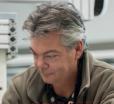

Showing 1261 - 1280 of 2363 results




Mark works at the Australian Nuclear Science and Technology Organisation (ANSTO) as a reactor heat-transfer specialist and is the president of the Australian Nuclear Association www.nuclearaustralia.org.



Role at ANSTO

Role at ANSTO

Role at ANSTO

Role at ANSTO
Geetanjali helps maintain the laboratories and provides technical support to researchers.

Shaun Jenkinson is currently Chief Executive Officer of ANSTO.
Bring the Periodic Table to life with Augmented Reality
This science week ANSTO is releasing a new way for students across Australia to learn about the periodic table of elements with augmented reality (AR). ANSTO's Free AR experience unlocks the periodic table to reveal a world of protons, neutrons and electrons and illustrates how useful they are to science and industry in the 21st century.

Research
Health researchers at ANSTO use world-class nuclear and isotopic techniques to undertake research and development activities to address some of the most challenging health problems.

Do you really know where your food comes from?
Million-year-old ice core recaptures climate history
Retrieving an Antarctic ice core more than a million years old presents challenges and opportunities.
Progress on low energy electronics
Soft X-ray experiments used to characterise new thin film topological Dirac Semimetal.
A possible world record: Studying thin films under extreme temperatures with reflectometry
A team of researchers from ANSTO and University of Technology Sydney have set a record by conducting thin film experiments at 1100 degrees C.
Sharing radiochemistry expertise with an IAEA training course
Twenty-four participants from Asia and the Pacific travelled to ANSTO for an International Atomic Energy Agency Regional Training Course on ‘Production and preclinical evaluation of emerging cyclotron-based radiopharmaceuticals’
Take a fresh look at ANSTO
Samples - Infrared microspectroscopy
The Infrared microspectroscopy microscopes can record spectra from a range of different samples; from thin microtomed sections to polished blocks and embedded particles. This section highlights the types of samples that can be analysed using the IRM beamline